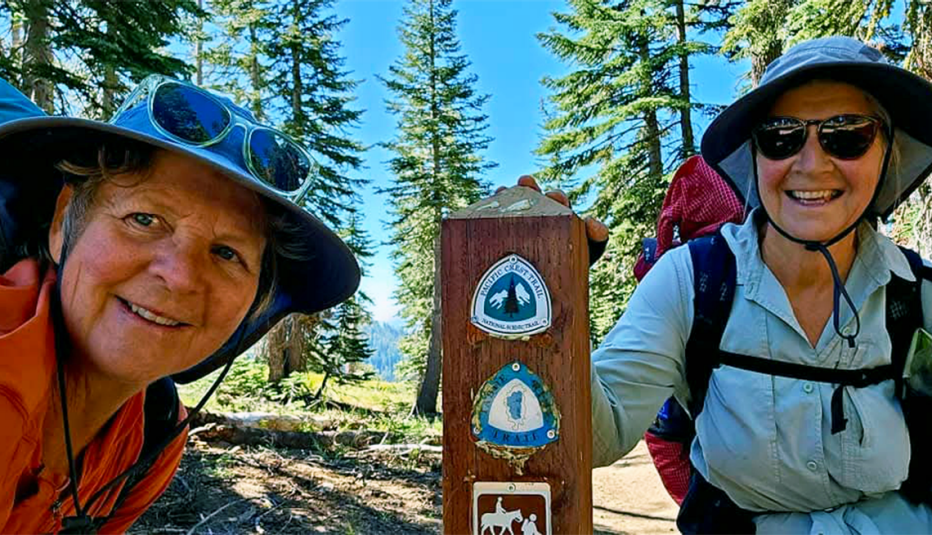Challenges


In 2015, Kristy Burns and her partner Annette Demel made a radical decision: They sold almost everything they owned and quit their jobs so they could hike, bike, kayak and raft their way across the country — and the world. “Instead of having things, we wanted to have experiences,” explains Annette, age 68.
Since then, she and Kristy, 61, have enjoyed an unconventional retirement packed with outdoor adventures that keep them mentally and physically strong while they experience awe in nature. They hope to inspire others, regardless of age, to venture into the wilderness and explore. “I tell people that, even if we only did this for a year, it was worth it,” Annette says. “It’s so amazing to give yourself permission to fully inhabit your life.”
Planning the leap
The duo didn’t have lucrative careers or family trust funds. Kristy was a licensed professional counselor specializing in trauma in young children. Annette was a librarian at a Colorado Springs high school. Undeterred, they made a five-year plan that involved selling most of their possessions — including their house — so they could pay off their debts, buy an RV to live in and rely on their pensions.
They purchased a 35-foot RV and named it Big Momma. After a lot of trial and error and more than a few video tutorials, they learned to drive and repair their rig. Annette figured out how to equip the vehicle with solar panels so they could boondock: camp for free on public lands and never have to plug in for electricity. “It’s the librarian mindset: If you can research it and you can find out about it, then you might as well try it,” Annette says.
Hitting the trails


One of their first adventures was backpacking the 567-mile Colorado Trail; during this trip, they christened themselves the “Wander Women.” They were joined by their friend Lynn Edmiston, who also purchased an RV and spent several years traveling with them. The next summer, the trio walked the 425-mile Oregon Coast Trail, which hugs the Pacific coast.
Before long, Kristy suggested they attempt a through-hike (end-to-end hike) of the Appalachian Trail. “We are prioritizing doing hard things now while we’re still able to,” Kristy says. “When we’re in our 90s we’ll still have adventures, but they’ll probably be different.”
















More From Staying Sharp
Sneak in Exercise During TV Time
Banish your inner couch potato with this mini-workout
Work Out With Denise Austin: Bicycle Crunch
Core-strengthening activities help posture and balance
Work Out With Denise Austin: Mini Push-Ups
They can help strengthen and tone your arms, chest and shoulders